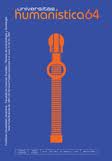Resumen
El objetivo del este artículo es analizar, desde el campo de la Comunicación/Educación, algunas políticas educativas, prácticas pedagógicas y enfoques curriculares de la educación básica primaria en México, para comprender que la inclusión del uso de tecnologías y de la educación mediática en el curriculum no puede realizarse sin diagnósticos y discusiones previas. Este hecho no garantiza el desarrollo de las competencias necesarias para el desenvolvimiento del sujeto en el siglo XXI. Para que las reformas educativas sean exitosas, deben eliminarse los rescoldos de antiguas prácticas educativas; considerar las condiciones actuales del país y los nuevos contenidos curriculares, en articulación con los discursos sociales amplios, desde una perspectiva incluyente.Se toman como ejemplos el caso de Enciclomedia; de la prueba nacional de evaluación curricular Enlace, y algunos contenidos del programa de Español para contrastar contradicciones y aciertos de las políticas educativas para el desarrollo de la democracia en México.

La revista Universitas Humanística se encuentra registrada bajo la licencia Creative Commons Reconocimiento 4.0 Internacional. Por lo tanto, esta obra se puede reproducir, distribuir y comunicar públicamente en formato digital, siempre que se reconozca el nombre de los autores y a la Pontificia Universidad Javeriana. Se permite citar, adaptar, transformar, autoarchivar, republicar y crear a partir del material, para cualquier finalidad (incluso comercial), siempre que se reconozca adecuadamente la autoría, se proporcione un enlace a la obra original y se indique si se han realizado cambios. La Pontificia Universidad Javeriana no retiene los derechos sobre las obras publicadas y los contenidos son responsabilidad exclusiva de los autores, quienes conservan sus derechos morales, intelectuales, de privacidad y publicidad.
El aval sobre la intervención de la obra (revisión, corrección de estilo, traducción, diagramación) y su posterior divulgación se otorga mediante una licencia de uso y no a través de una cesión de derechos, lo que representa que la revista y la Pontificia Universidad Javeriana se eximen de cualquier responsabilidad que se pueda derivar de una mala práctica ética por parte de los autores. En consecuencia de la protección brindada por la licencia de uso, la revista no se encuentra en la obligación de publicar retractaciones o modificar la información ya publicada, a no ser que la errata surja del proceso de gestión editorial. La publicación de contenidos en esta revista no representa regalías para los contribuyentes.


